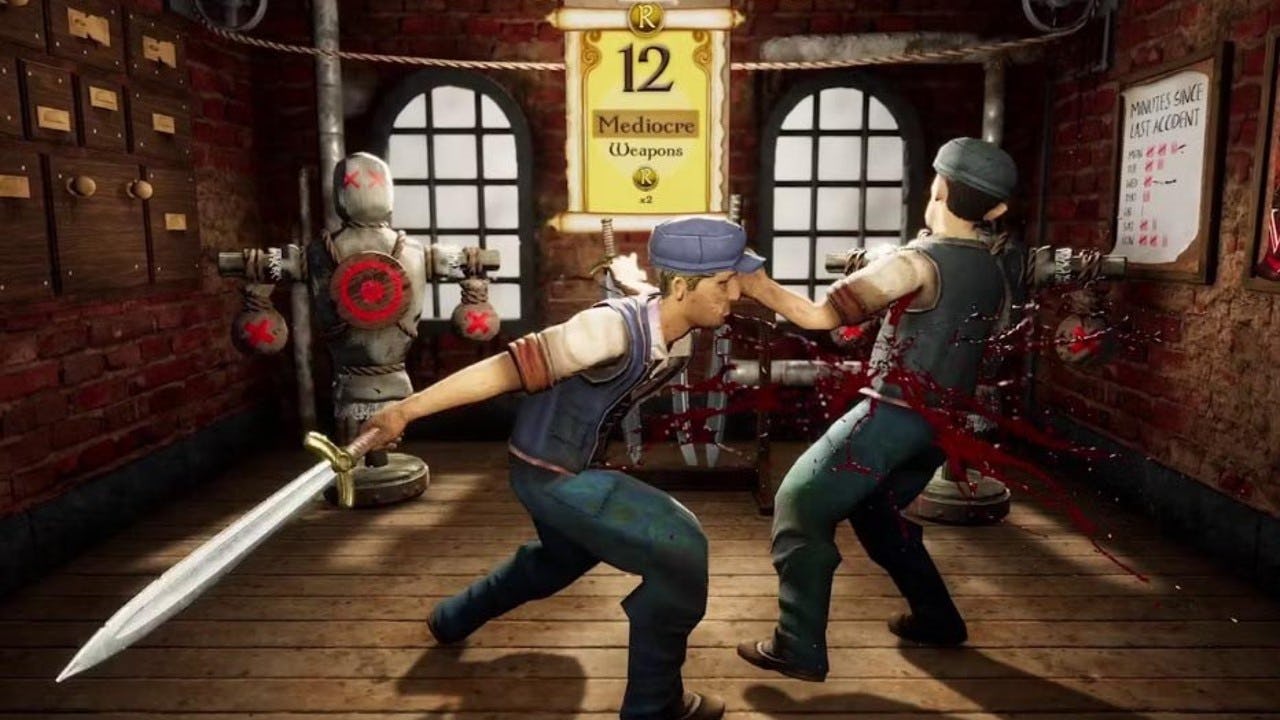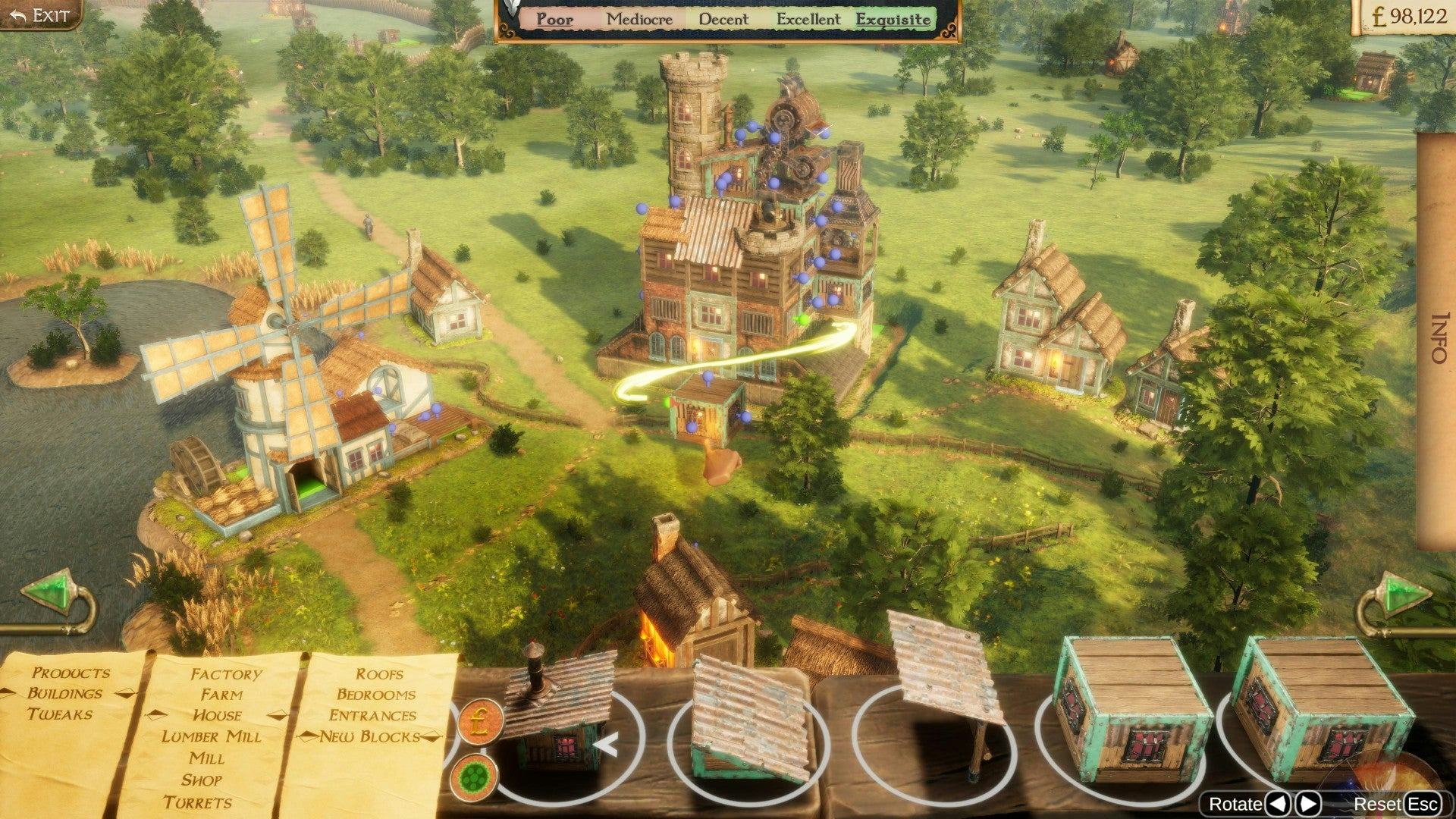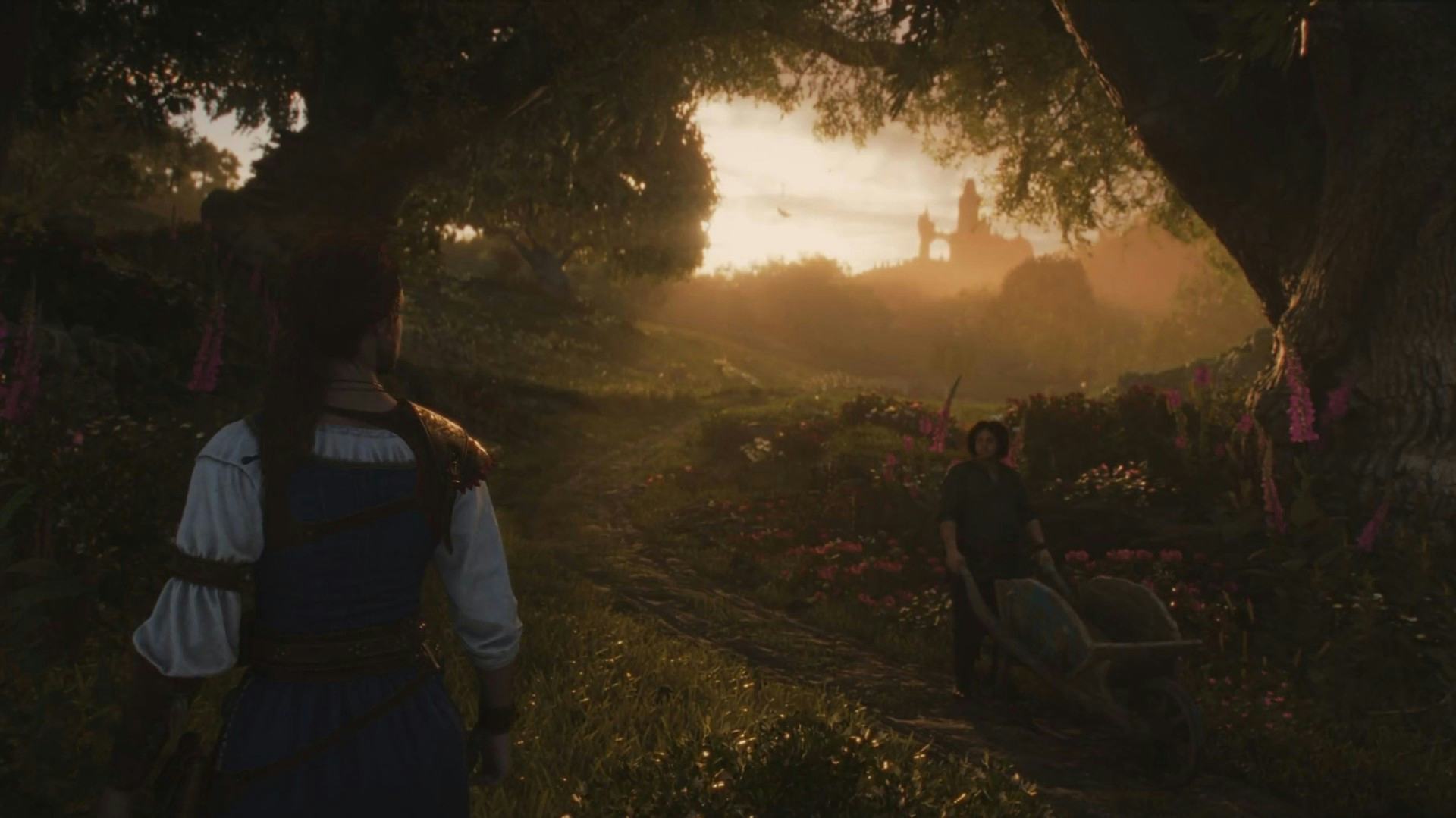
Once upon a time, the name Peter Molyneux was known far and wide throughout the video game industry. As the creator of Fable, Black and White, and Dungeon Keeper, Molyneux left his mark on video games at large, but his reputation has also grown in other ways. The creator is notorious for overpromising and underdelivering on his games, and for the last decade, he’s been surprisingly quiet. But now, Molyneux is back with a brand new game with the same kind of lofty ambitions he’s known for. Masters of Albion is an upcoming strategy god game that looks like it blends elements of nearly everything Molyneux has done before.
Masters of Albion fills three different genres all at once — strategy, god game, and RPG. As the godlike ruler of a small town, during the day you need to plan your city by building houses, constructing shops, managing residents, facilitating improvement, and everything you might expect out of a city builder. Once night falls, however, hordes of the undead besiege your city, and it’s up to your godly powers and a designated hero to keep the peace. You can either buff and support your hero with powers or take direct control of them in action RPG combat.

It’s an ambitious concept and one that sounds like it could genuinely be interesting, but it’s easy to see why there’d be some trepidation around Masters of Albion given Molyneux’s history.
One of Molyneux’s most notorious oversells happened with the first Fable. He claimed the game would let you have children and span your hero’s entire lifetime — he even had an anecdote where he said if you knocked an acorn off a tree, over the course of the game you’d see a new tree grow there. Those things obviously didn’t happen, but Fable still became one of the most beloved RPGs of all time.
More recently, Molyneux and his studio, 22cans, launched an experimental iOS game in 2012 called Curiosity. In the game, there were dozens of layers of cubes, encased in each other like nesting dolls. The studio ran a competition, and whoever unveiled the final cube would become the “God of Gods,” in the studio’s next game, Godus (released in 2013). This meant said player would be able to influence multiplayer modes in Godus and would even get a small cut of the revenue. Unfortunately, in a 2015 interview with Eurogamer, the winning player revealed they never saw any money. Godus started losing money for 22cans despite a successful Kickstarter.
Molyneux has a checkered past, but the creator says he’s learned his lesson, at least in some ways. In an interview with PCGamesN, Molyneux pledged to be much more careful with his words, making sure not to overpromise.
“It’s a realization that while it’s great to talk with enthusiasm and it’s great to show people the wonder of what’s going on in your mind, if that becomes a promise and something that someone becomes really excited about, and then they actually commit their time to that, and then that promise is just not in the game, they’re going to feel disappointed,” Molyneux said.

22cans will take a bit of a different approach to the development of Masters of Albion, gradually opening up the game to its community, and seeking input on potential changes. Molyneux explains this approach to PCGamesN by saying, “There are very good reasons to listen to that community. You’ve got to be careful it doesn’t become design by committee, but that engagement has very real value.”
That clearly shows some level of introspection on Molyneux’s part and makes us hopeful that Masters of Albion could be one of his games that genuinely delivers. It has aspects of some of his biggest games — the strategy and god powers of Black and White, the quirky British humor and setting of Fable, and the hero management of Dungeon Keeper. There’s some real potential for Masters of Albion to be something special.
Molyneux is also already back to being a fascinating character, talking about how this could be his last game because of his “drinking and smoking,” and how Masters of Albion shares a setting with the Albion of the Fable games because it’s a real place that can’t be trademarked. No matter how Masters of Albion pans out, it’ll definitely be interesting.







